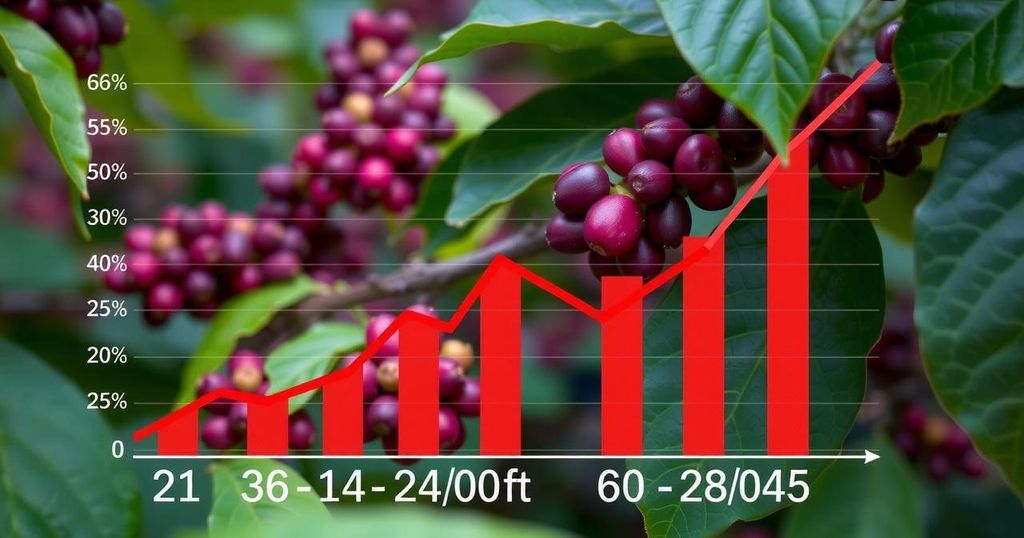Coffee Prices Expected to Rise Due to Climate Change Challenges

Coffee prices are set to escalate due to climate change, with arabica beans spiking to $3.50 per pound recently. Severe droughts in Brazil, the largest coffee exporter, have contributed to supply shortages affecting global coffee production. Similar climatic challenges are faced by other crops, leading to overall increased food prices and economic implications for consumers.
The price of coffee is projected to rise significantly due to the enduring effects of climate change on coffee production, particularly the impact of severe droughts in key growing regions. Recently, the cost of arabica beans soared to $3.50 per pound, marking a staggering 70% increase compared to previous years. A notable factor in this increase is Brazil, which, as the largest coffee exporter, has experienced its worst drought in decades, severely affecting the supply of arabica beans, which constitute about 60% of global coffee production. Meanwhile, robusta beans in Vietnam are facing similar climatic threats.
The repercussions of climate change extend beyond coffee, as other crops like hops and grapes also experience detrimental effects. Brewers and vintners alike are concerned that ongoing adverse environmental conditions will lead to significant alterations in production processes and costs in their respective industries. Reports indicated that the coffee sector is unlikely to stabilize soon, largely due to prolonged drought conditions affecting millions of coffee bags in production, with projections indicating further deficits in the coming years.
Thus, the intricate relationship between climate change and agricultural outputs poses broader economic challenges for consumers already grappling with increased food prices, highlighting an urgent need for sustainable farming practices and climate adaptation strategies to shield global food supplies.
The increase in coffee prices is primarily attributed to climate change, which has caused extreme weather events, including severe droughts in major coffee-producing countries such as Brazil and Vietnam. Climate change’s impact on agriculture is extensive, contributing to shortages in essential food crops and altering their flavor profiles, leading to higher consumer costs and market instability. Understanding this background is crucial to comprehending the impending price hikes in coffee and its broader implications for the food industry.
In conclusion, the likelihood of rising coffee prices in 2025 is rooted in significant climate change effects that exacerbate agricultural challenges. With growing concerns over droughts impacting coffee production, consumers can expect persistent increases in coffee costs. This situation reflects a larger trend of climate-related challenges facing various agricultural sectors, necessitating a reevaluation of food security strategies and sustainable practices to mitigate these impacts.
Original Source: www.thedailymeal.com






